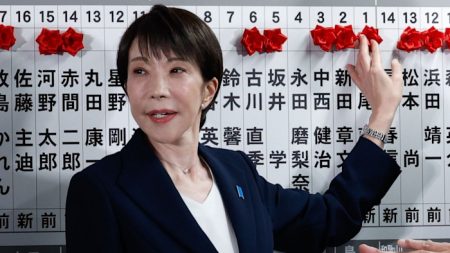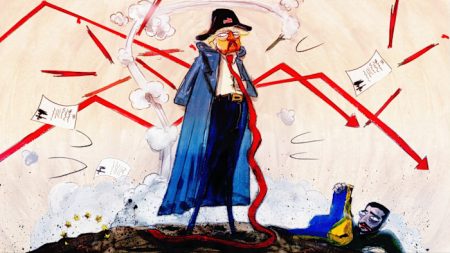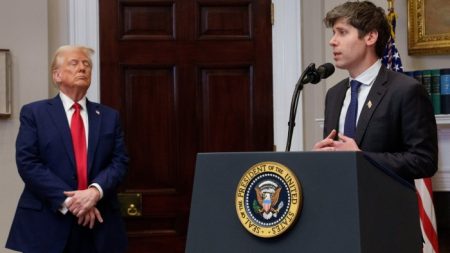Unlock the Editor’s Digest for free
Roula Khalaf, Editor of the FT, selects her favourite stories in this weekly newsletter.
UK government bonds rallied on Thursday after Sir Keir Starmer said Rachel Reeves would be chancellor for a “very long time to come” and insisted the government would stick to her fiscal rules.
The prime minister made the pledges after he failed to back a tearful Reeves in the House of Commons on Wednesday, triggering a sharp sell-off in gilts and the pound.
Investors said the prospect of Reeves’ departure had raised the spectre that the government’s fiscal rules could be ditched in favour of higher borrowing.
But in an interview with Virgin Radio on Thursday, Starmer said Reeves would remain chancellor for “a very long time to come, into the next election and beyond it”.
He added that he was “absolutely committed” to her rule that current spending must be matched by tax receipts by 2029-30.
The rally pushed yields on the 10-year gilt down 0.08 percentage points to 4.54 per cent in early trading on Thursday, reversing some of Wednesday’s sell-off, when yields jumped 0.16 percentage points. That move was the biggest one-day jump since April.
The pound, which fell 0.8 per cent against the dollar on Wednesday, recovered to trade up 0.3 per cent at $1.3670.
“The gilt market likes the ironclad commitment to the fiscal rules and chancellor Reeves’ strong track record of taking the difficult but necessary corrective actions to make sure they are met,” said Tomasz Wieladek, chief European economist at T Rowe Price.
“The market is certainly giving the chancellor a vote of confidence,” added Sanjay Raja, chief UK economist at Deutsche Bank.
In a day of high political drama on Wednesday, Reeves appeared to shed a tear when Starmer did not give her his full backing when asked about her future by Conservative leader Kemi Badenoch at Prime Minister’s Questions.
Starmer told Virgin Radio on Thursday that he had not been aware of Reeves’ apparent distress at the time.
“I actually personally didn’t even appreciate it was happening in the chamber because I came in and I’ve got questions being fired at me,” he said.
Starmer, who attributed Reeves’ distress to a “personal matter”, added that he had had “a long chat” with the chancellor on Wednesday night. “She’s fine. She’s good,” he said. “She’s very resilient and strong.”
In introductory remarks ahead of Starmer’s speech on NHS reform in London on Thursday, Reeves appeared much more buoyant than the previous day, attributing the extra investment in the health service to decisions taken in last autumn’s Budget.
“Our commitment to the fiscal rules means we can boost our investment in public services,” she said.
Asked if having to “drag the chancellor here to look performatively happy in front of the cameras” was a sad indictment of the state of politics, the prime minister said: “I don’t think that’s a fair description.”
On Tuesday, Starmer had gutted his controversial welfare bill as he fended off a full-scale Labour rebellion in chaotic scenes in the House of Commons, leaving a multibillion-pound hole in UK public finances.
Reeves had been one of the cabinet ministers who had urged rebels to back the legislation.
Asked about the welfare U-turn by the BBC’s Nick Robinson on Wednesday, Starmer said: “It was important that we took our party with us, that we got it right, and Labour politicians come into public life because they care deeply about these issues.”
Nigel Farage, leader of the populist Reform UK party, said it had been “painful” to watch Reeves crying in the chamber.
“I thought she was ill to begin with. I am sorry for her, personally . . . When you work as part of a team, when one of them is limping, you help them out,” he told LBC. “[Starmer] left without saying anything to her, it looked a bit callous.”
Read the full article here













